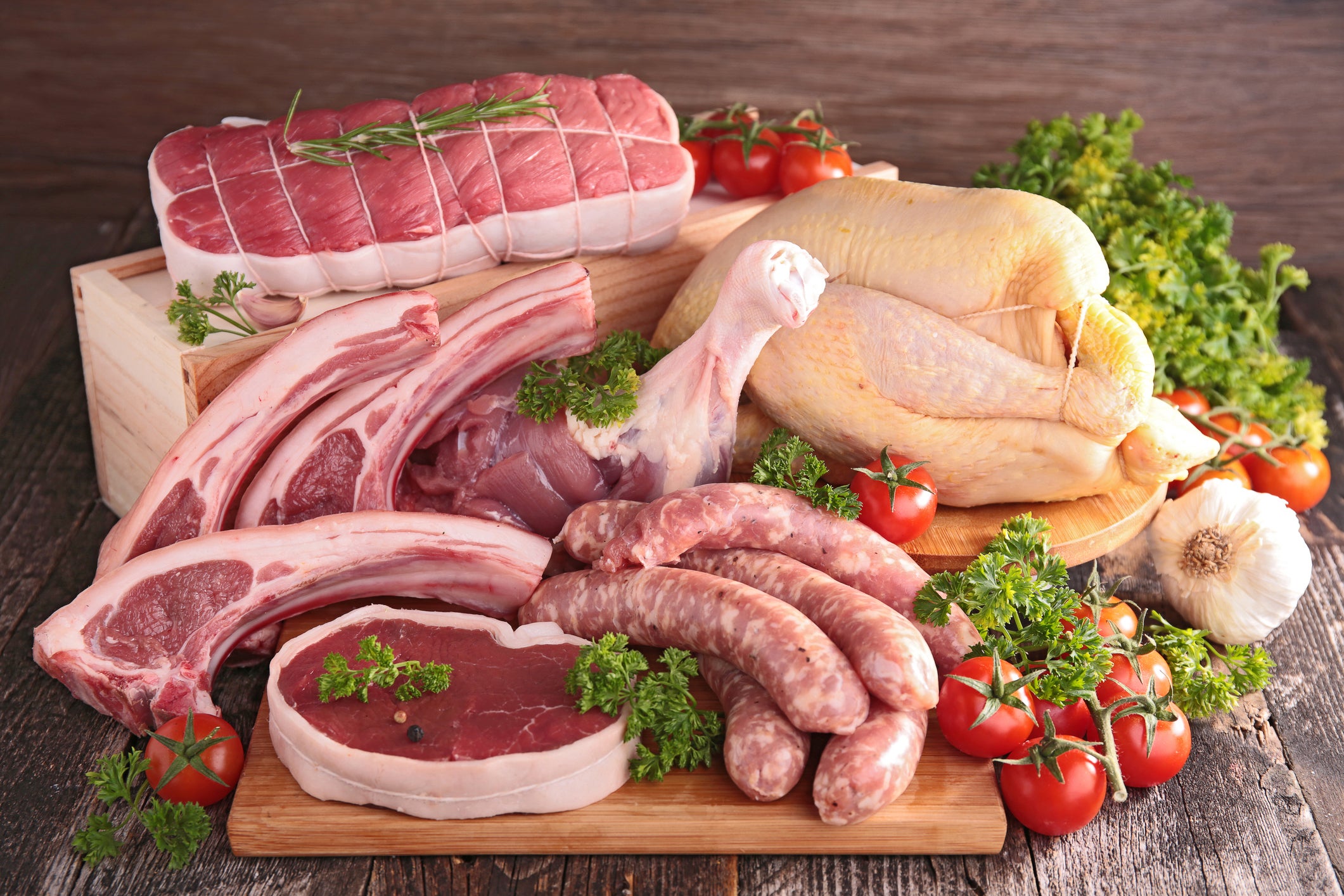Meat tax 'inevitable' as society becomes more concerned about impact on health and enviroment, analysts warn
In future meat could be subjected to the similar levies to tobacco and carbon emissions, report says

Your support helps us to tell the story
From reproductive rights to climate change to Big Tech, The Independent is on the ground when the story is developing. Whether it's investigating the financials of Elon Musk's pro-Trump PAC or producing our latest documentary, 'The A Word', which shines a light on the American women fighting for reproductive rights, we know how important it is to parse out the facts from the messaging.
At such a critical moment in US history, we need reporters on the ground. Your donation allows us to keep sending journalists to speak to both sides of the story.
The Independent is trusted by Americans across the entire political spectrum. And unlike many other quality news outlets, we choose not to lock Americans out of our reporting and analysis with paywalls. We believe quality journalism should be available to everyone, paid for by those who can afford it.
Your support makes all the difference.“Sin taxes” on meat to fight climate change and protect human health, according to analysts.
The meat and livestock industry currently causes 15 per cent of all global greenhouse gas emissions and is partially responsible for deforestation as land is given over to rearing cattle.
In addition more and more people are consumes higher levels of meat than their parents – especially in countries experiencing rapid economic development where eating meat, such as China, is regarded as a status symbol.
This is already having a massive impact on human health as the World Health Organisation declared that processed meat was carcinogenic. It has been linked with many forms of cancer and increased risk of heart disease.
A new report from the investor network Farm Animal Investment Risk and Return (Fairr) Institute says meat would in future likely be subjected to the same levies as tobacco and carbon emissions.
Meat taxes have already been proposed by politicians in Germany, Sweden and Denmark while China has already cut its recommended maximum meat consumption by 45 per cent.
The founder of Fairr, Jeremy Coller, told the Guardian: “If policymakers are to cover the true cost of human epidemics like obesity, diabetes and cancer, and livestock epidemics like avian flu, while also tackling the twin challenges of climate change and antibiotic resistance, then a shift from subsidisation to taxation of the meat industry looks inevitable.
“Far-sighted investors should plan ahead for this day.”
The analysis shows nations begin to introduce the so-called sin taxes when a consensus forms that a product is harmful.
The authors found more than 180 jurisdictions had taxes on tobacco and more than 60 taxed carbon emissions.
Meanwhile, following an upsurge of concern about the corrosive impact of sugar on diet since the start of the decade, at least 25 per cent of jurisdictions impose a sugar tax.
Rob Bailey , the Research Director on the environment at Chatham House, said: “It’s only a matter of time before agriculture becomes the focus of serious climate policy.
“The public health case will likely strengthen government resolve, as we have seen with coal and diesel. It’s hard to imagine concerted action to tax meat today, but over the course of the next 10 to 20 years, I would expect to see meat taxes accumulate.”
Join our commenting forum
Join thought-provoking conversations, follow other Independent readers and see their replies
Comments